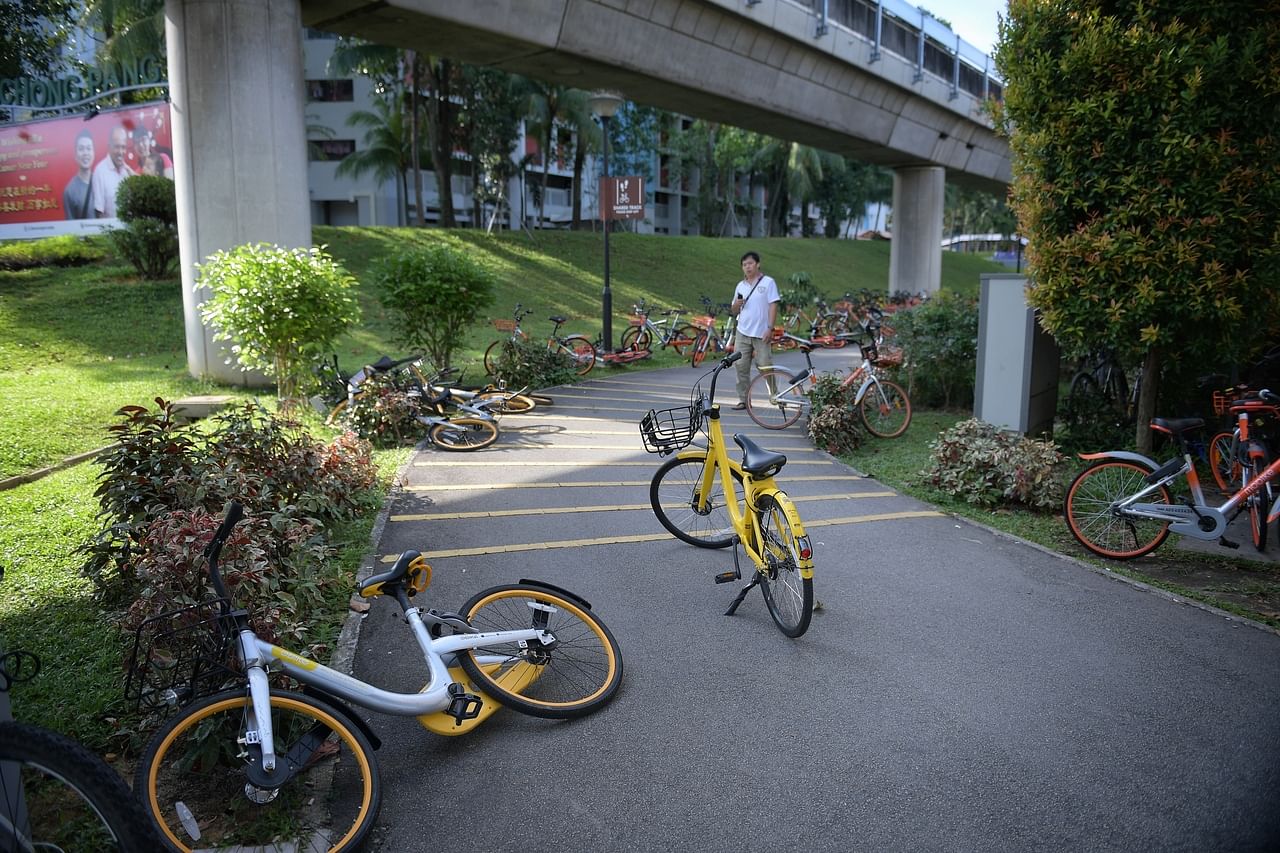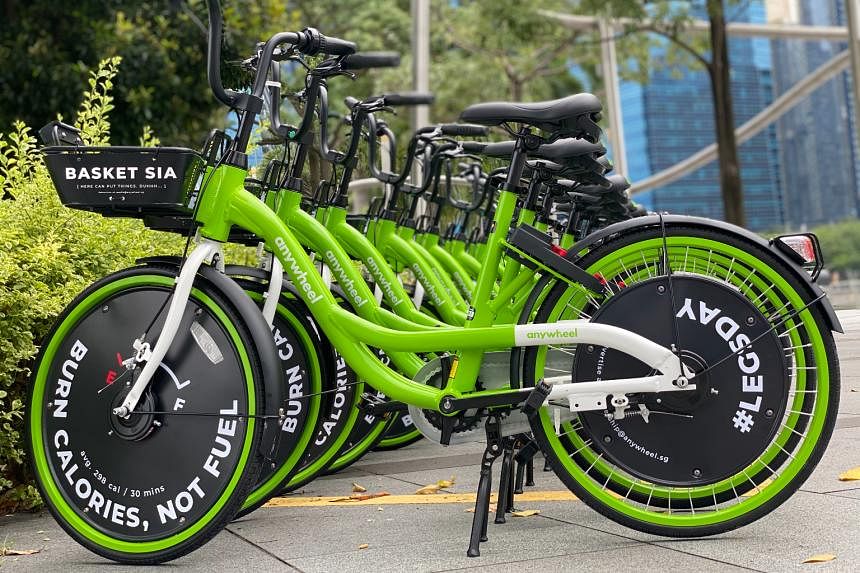SINGAPORE - Residents in Ang Mo Kio, Pasir Ris, Punggol and Tampines will get easier access to shared bicycles in the coming months.
Mr Htay Aung, chief executive of shared bicycle operator Anywheel, told The Straits Times (ST) on Monday (June 6) that the firm is aiming to deploy its bicycles in these areas by the end of the year.
The expansion of areas covered by the firm comes after Anywheel secured approval from the Land Transport Authority (LTA) to double its fleet size to 30,000 shared bicycles.
This is the largest number of shared bicycles an operator has been allowed to deploy since a licensing scheme started in 2018.
In contrast, the other shared bike operator SG Bike is able to operate only 5,000 bicycles. This is down from the 25,000 bicycles it was allowed to operate in late 2019.
A third operator could also join the scene soon. LTA said on Tuesday evening (June 7) that it is reviewing an application from a new operator to start services here.
Anywheel's Mr Htay Aung said the decision to expand the firm's fleet came on the back of consistent monthly growth in user numbers over the past two years. He expects demand to further increase with the return of tourists, following eased border restrictions in Singapore since April.
The firm currently deploys the bulk of its bicycles in Marina Bay, East Coast, District 9 and the Central Business District. After taking into account stolen and damaged bicycles, there are 14,000 usable bicycles.
About 2,000 new bicycles will be deployed on the streets this month. Most of these will be deployed in the existing hot spots of Marina Bay and East Coast, and the remainder in Tampines, said Mr Htay Aung.
"It is important that we continue to double down on deployment in existing areas," he said.
"We are seeing a lot of empty searches in which people open our mobile app but are unable to find our bicycles near them."
Mr Htay Aung said about three in five trips on Anywheel's bicycles now are trips between residences and bus stops or MRT stations.
On how Anywheel determines new areas in which to deploy its bicycles, such as Tampines, Mr Htay Aung said its app has registered instances of people looking for bicycles in these areas.
The firm hopes to achieve profitability by the end of this year, Mr Htay Aung added. He did not provide specific numbers, but said the firm has also been able to generate revenues through selling advertising space in its mobile app and on its bicycles.
Meanwhile, an SG Bike spokesman told ST that the reduction in its fleet size to 5,000 bicycles was a temporary move.
The firm had become Singapore's largest shared bicycle operator in 2019, when it took over Mobike's licence to operate 25,000 bicycles. It later applied to LTA to operate a smaller fleet of 15,000 bicycles, before the latest round of reduction.
Its bicycles are mainly in the north, north-eastern and eastern parts of Singapore.
"Over the past years, we have seen decreased bike count due to rising vandalism and theft cases of between 4,000 and 6,000 bicycles," said the spokesman.
"At the same time, our bicycles are starting to get old, and are due for replacement and refurbishment."
SG Bike is in the process of replacing damaged bicycles. It is also looking into how to better prevent bicycles from being damaged or stolen.
The spokesman said SG Bike was unable to provide details on whether the business is now profitable.
Bicycle sharing had rapidly gained popularity after it was introduced to Singapore around 2017. At its peak, there were more than 100,000 shared bicycles deployed across the island by several operators.
But the global fall from grace of prominent operators such as ofo and the introduction of the licensing scheme to curb indiscriminate parking resulted in the use of shared bicycles plummeting.

Singapore University of Social Sciences transport economist Walter Theseira said shared bicycle operators worldwide have been facing the issue of financial viability.
"Without restraint on competition and deployment of shared bikes, it is likely that operators will chase the same few operationally profitable markets in Singapore, and end up with overhead costs that can't be recovered from fees as they will be splitting the market," said Associate Professor Theseira.
"I am no longer convinced that the private enterprise competition model makes sense for shared bikes, and a better model might be what LTA had originally considered, which was a government-backed local monopoly."


